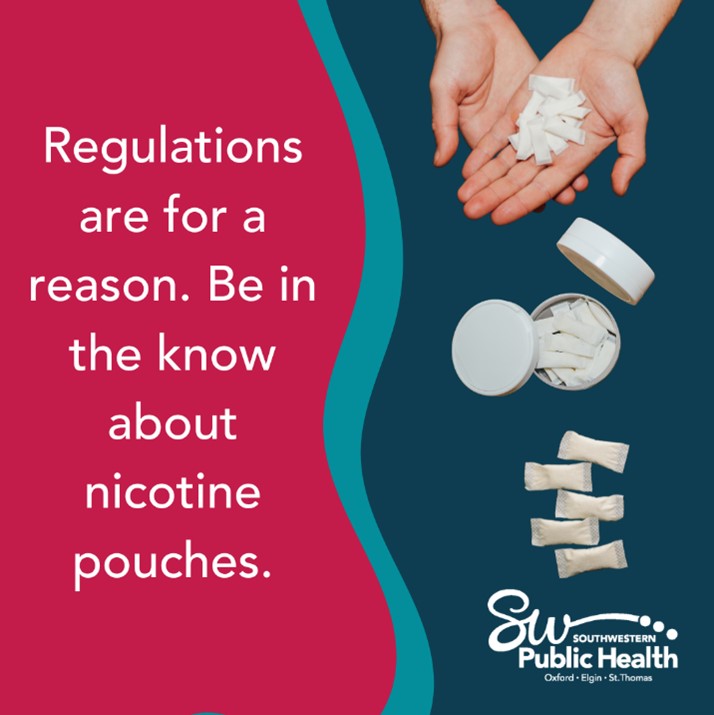Vaping and Nicotine
Vaping is not harmless. The health effects are still being studied as these products are still relatively new and more research is needed. Some research has shown that vaping has negative short-term health effects and that vape products contain many harmful chemicals. The long-term impacts of vaping are currently not known.
Youth vaping risks
Vaping can lead to nicotine dependence in youth. Nicotine is the addictive ingredient found in tobacco. It can change the teenage brain and affect memory and concentration. Some vape products can have more nicotine in a single pod as an entire pack of cigarettes. E-cigarettes that do not contain nicotine still have many harmful chemicals. Vaping may also have the potential to re-normalize smoking and can lead to youth starting to smoke.
It is important to talk to your children about vaping. For more information about vaping and talking to youth about vaping visit:
Vaping laws
Southwestern Public Health enforces the Smoke Free Ontario Act, including provisions related to e-cigarettes.
Quitting smoking with vaping
Research is unclear about whether vapour products are effective as a quit smoking tool to help people break their addiction to nicotine. Southwestern Public Health (SWPH) currently does not recommend using vape products to quit smoking. Contact us for more information or help quitting smoking or vaping.
Nicotine Pouches: A Growing Concern for Youth
Nicotine pouches are small, flavored pouches that deliver nicotine without the need for combustion or tobacco leaf. These pouches are placed between the gum and lip, releasing nicotine into the bloodstream. Tobacco industry owned brands like Zyn and Zonnic have gained popularity as they offer a discreet and smokeless alternative to traditional tobacco products.
Despite being marketed as a safer option for adult smokers looking to quit, nicotine pouches pose significant risks, especially for youth. One of the primary concerns is the high nicotine content, which can lead to addiction. Nicotine is a highly addictive substance that can adversely affect adolescent brain development, impacting areas responsible for attention, learning, and impulse control. Check out Not an Experiment for more information about the link between nicotine and mental health.
Marketing strategies that emphasize the “tobacco-free” aspect of nicotine pouches can also mislead young people into thinking these products are safe. However, the reality is that nicotine addiction can develop quickly in adolescents, leading to long-term health issues and increasing the likelihood of transitioning to other tobacco products.
In August, 2024, Health Canada introduced new measures to reduce the appeal, access and use of nicotine pouches among young people. These measures include:
- Prohibit advertising or promotion, including labelling and packaging, that could be appealing to youth.
- Require nicotine pouches, to be sold only by a pharmacist or an individual working under the supervision of a pharmacist, and to be kept behind the pharmacy counter.
- Prohibit nicotine pouches, from being sold with flavours other than mint or menthol.
- Require a front of package nicotine addiction warning, as well as a clear indication of the intended use as a smoking cessation aid for adults trying to quit smoking.
- Require manufacturers to submit mock-ups of labels and packages for all new or amended NRT licenses to ensure no youth appeal.












